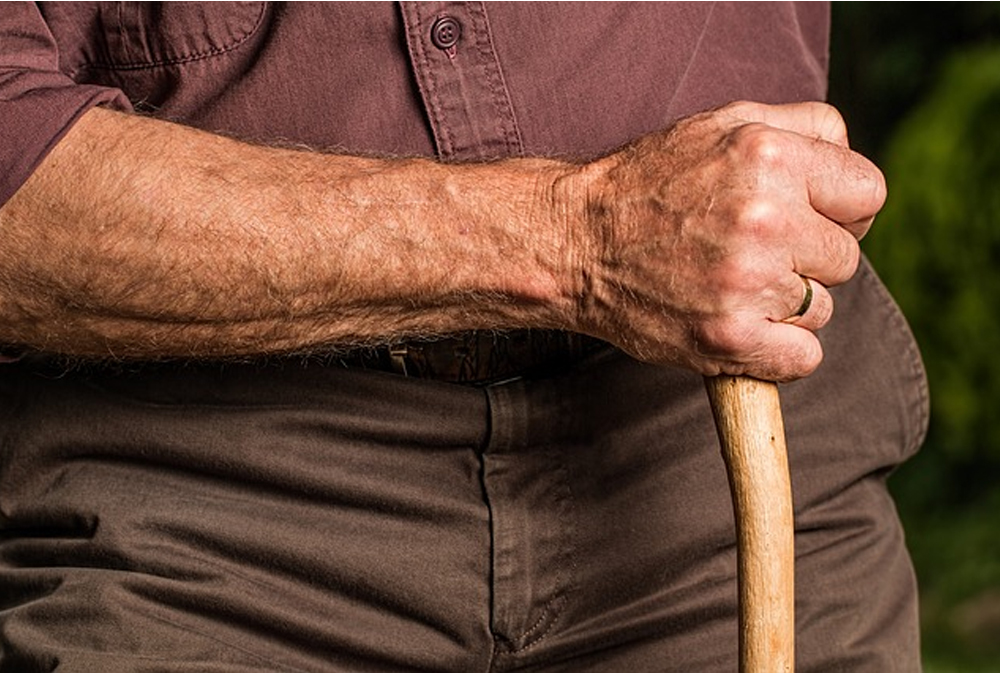As we age, it’s common to face new challenges with mobility. Mobility refers to a person’s ability to move around comfortably on their own. Unsteadiness while walking or difficulties getting in and out of beds and chairs can easily lead to dangerous slips and falls for older people. Certain medical conditions and medications can contribute to these difficulties by causing symptoms such as muscle weakness, pain and joint problems.
Even minor difficulties for your elderly relative can have a large impact on their daily life. Seemingly everyday tasks like visiting friends or shopping for their groceries may become too difficult to manage and increase reliance on others. Mobility problems can have social and psychological effects and can lead to low self-confidence and even depression.
Mobility issues can also indicate more serious health problems, so it is important to look out for signs of problems with mobility in the elderly and take steps to solve any issues promptly.
What Causes Mobility Issues in the Elderly
Mobility issues often become more prevalent with age due to the natural ageing process and the cumulative effects of various health-related issues. Here are some common causes of mobility issues in the elderly:
Physical & Health Relates Causes
- Muscle Weakness: There is a natural loss of muscle mass and strength as we age, a condition known as sarcopenia. This can lead to difficulties with balance, strength and mobility.
- Joint Problems: Conditions like osteoarthritis, rheumatoid arthritis, and other joint disorders become more common with age. These conditions can lead to pain, stiffness, and reduced joint flexibility, making it harder to move around.
- Bone Health: Osteoporosis, a condition characterised by weakened and brittle bones, can increase the risk of fractures and falls.
- Neurological Conditions: Diseases like Parkinson’s disease, multiple sclerosis, and peripheral neuropathy can affect the nervous system and disrupt coordination and muscle control.
- Cardiovascular Issues: Heart disease, hypertension, and other cardiovascular problems can result in reduced stamina and shortness of breath, making it challenging to engage in physical activities.
- Vision and Hearing Loss: Impaired vision and hearing can make it challenging for the elderly to navigate their environment safely, increasing the risk of falls and mobility problems.
- Cognitive Impairment: Conditions such as dementia and Alzheimer’s disease can impact an individual’s ability to plan and execute physical movements safely.
- Obesity: Being overweight or obese can put extra stress on joints and muscles, making it more difficult to move comfortably.
- Medications: Some medications prescribed to older adults may have side effects that affect balance, coordination, or muscle function.
Lifestyle Contributing Factors
- Deconditioning: A sedentary lifestyle can lead to deconditioning, where the muscles and cardiovascular system weaken due to lack of use. This can result in a decreased ability to engage in physical activities.
- Environmental Factors: Living in an environment that is not adapted for older adults, such as a home with steep stairs or lack of handrails, can contribute to mobility issues.
- Lifestyle Choices: Unhealthy habits like smoking, excessive alcohol consumption, and poor nutrition can accelerate the ageing process and increase the risk of mobility problems.
- Psychological Factors: Depression and anxiety can impact a person’s motivation and willingness to stay active, which can exacerbate mobility issues.
Early Signs to Look Out For
There are several signs that you can look out for that could indicate a mobility problem in your elderly relative. These include:
- Balance Issues: Notice if they become unsteady while walking or have trouble maintaining their balance. Frequent stumbling or tripping may suggest a problem.
- Difficulty Rising: Observe if they struggle to get out of a chair or find it challenging to sit down without support. This could indicate weakened muscles or joint problems.
- Stair Challenges: Staircases are inherently dangerous. Pay attention to any difficulties they may encounter when going up or down the stairs. This can be a significant red flag for mobility issues.
- Hygiene and Home: Look for subtle signs such as a decline in personal hygiene standards or a less tidy home. These changes may be due to reduced physical abilities, making it harder for them to perform their usual daily tasks and routines.
- Frequent Falls: One of the most serious signs is a fall. Elderly individuals are at an increased risk of falling, and while some falls may be accidental, they can also signal underlying mobility problems. Falls can result in injuries that further reduce mobility.
Dealing with a Sudden Loss of Mobility in Elderly
If you notice signs of mobility difficulties, start by talking them over with your elderly relative. Bring the topic up in conversation and let them know that you want to help them and that they need to be honest with you about any difficulties they are having, including any pain or stiffness they feel.
If your elderly relative has already experienced a sudden slip or fall, consult their GP or a healthcare professional right away. They can identify the underlying cause and recommend appropriate treatment or rehabilitation. Be sure to follow their advice closely, which may include physical therapy, medication, or assistive devices.
Sometimes a fall for no reason could indicate a more serious problem like dementia, Parkinson’s, or problems with eyesight, and it is best to catch these as early as possible to delay the progression of symptoms.
Supporting Someone with Mobility Problems
Once it is clear that your elderly relative’s mobility is being affected, you may want to start looking for ways to support them as they adjust to their new lifestyle.
Consider making the necessary modifications at home to ensure safety and accessibility. This may involve installing handrails, ramps, grab bars or anything else that can help the person move safely around their home.
Removing tripping hazards and creating a clutter-free space can reduce the risk of falls. Consider investing in mobility aids like walkers or fall alarms to help the individual regain or maintain their independence. We have a helpful guide on choosing fall alarms for elderly people.
Remember that a sudden loss of mobility can be emotionally challenging. Offer emotional support and encouragement to your elderly relative as they adapt to their new circumstances. Consider involving them in social activities and hobbies that accommodate their new mobility level to help maintain their quality of life.
You may also want to encourage them to engage in prescribed physical therapy exercises and activities that promote mobility. Staying active, even within their limitations, can help improve strength and prevent further falls and accidents.
Learn more about managing mobility problems in the elderly.
Should You Seek Professional Assistance?
Mobility problems can affect confidence levels. Your loved one may be worried about falling when you are not there, and this can prevent them from engaging in activities they enjoy or carrying out their everyday normal tasks.
If mobility problems are affecting your elderly loved ones, it could be time to start looking into options such as professional care. This does not necessarily mean a care home, but a care worker who can help your relative to be more independent in their own home.
At Prestige Nursing & Care we believe that people who require mobility support should be able to live a fulfilled and healthy life with the right care in place, tailored to their individual needs.
Staying at home with mobility care means that you can continue to live life your way, whilst benefiting from one-to-one care provided by a competent and compassionate carer. Our carers will focus on ensuring your home is safe and whilst effectively managing your mobility care needs, so you can enjoy an improved quality of life. All with much reassurance and peace of mind for family members.

